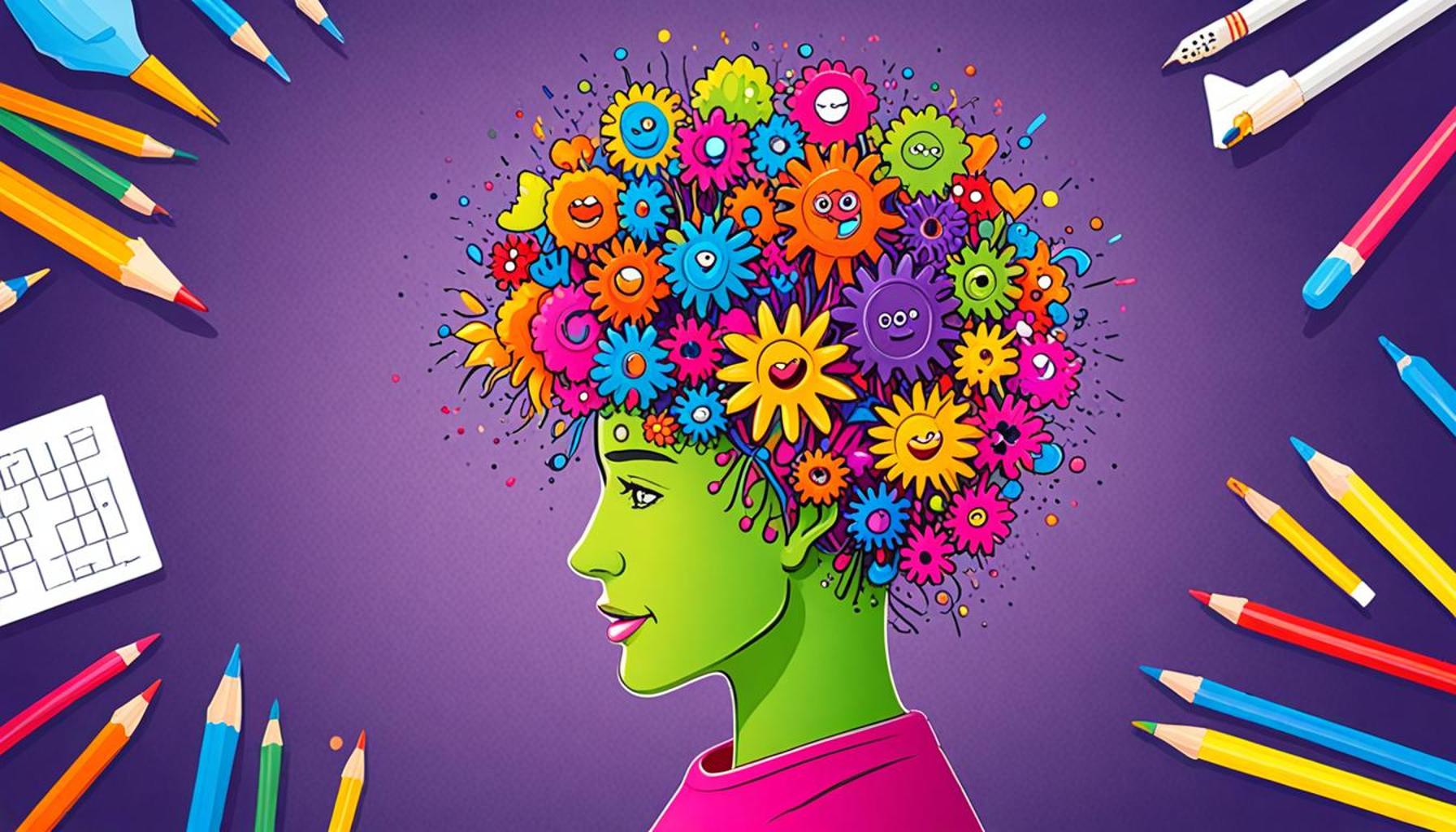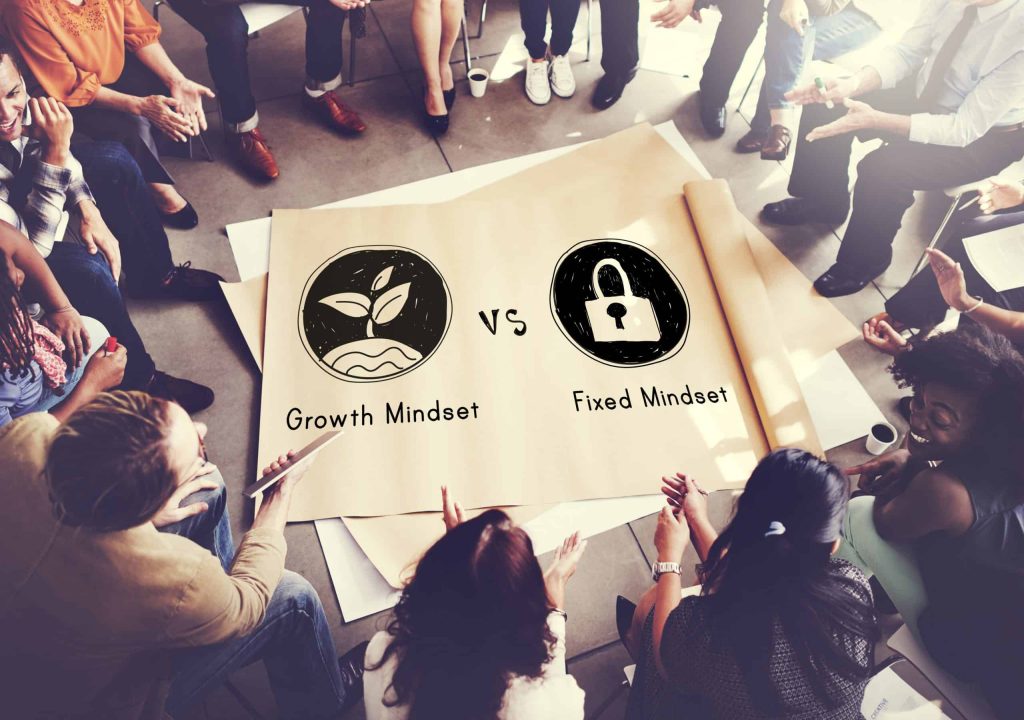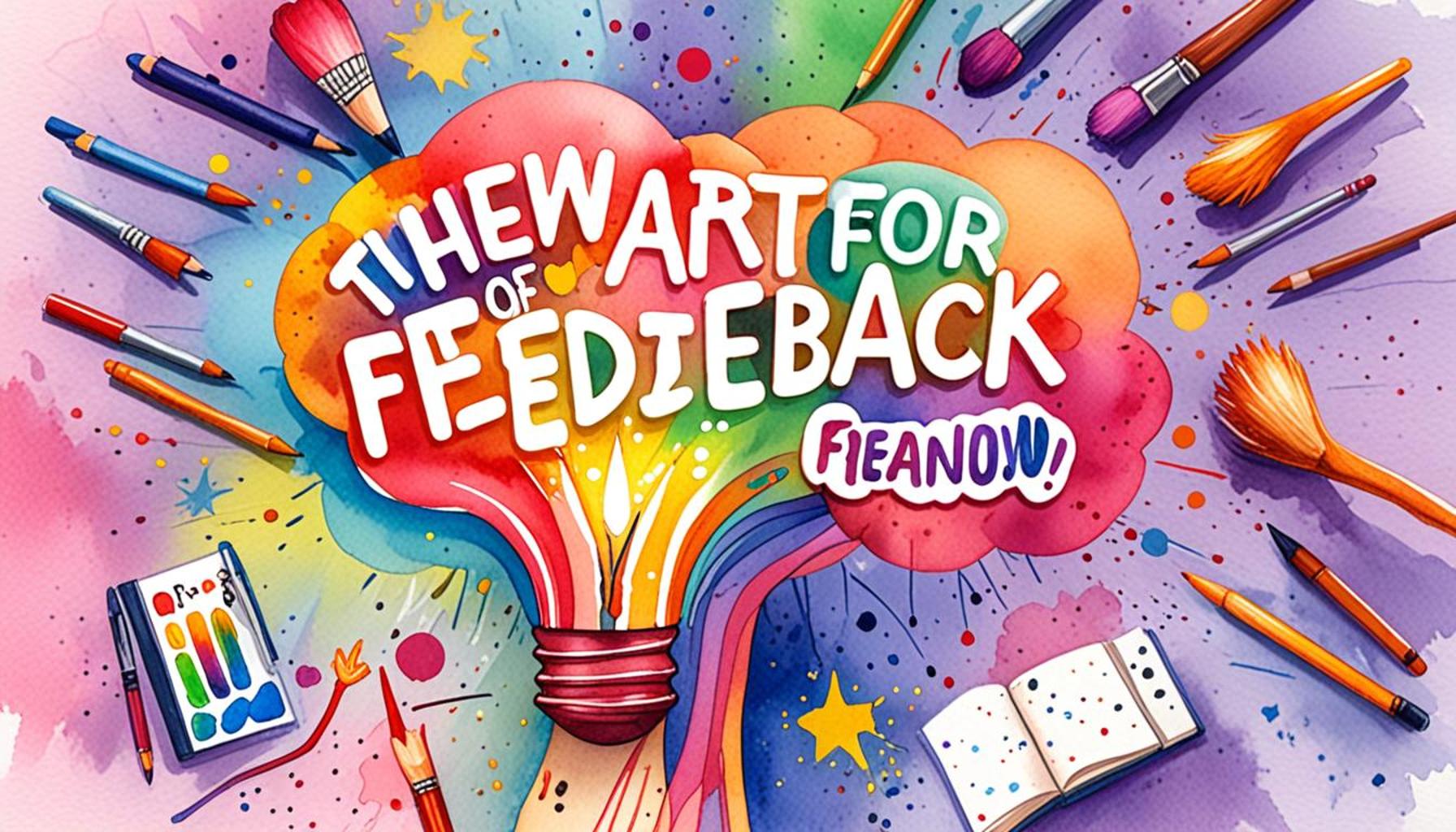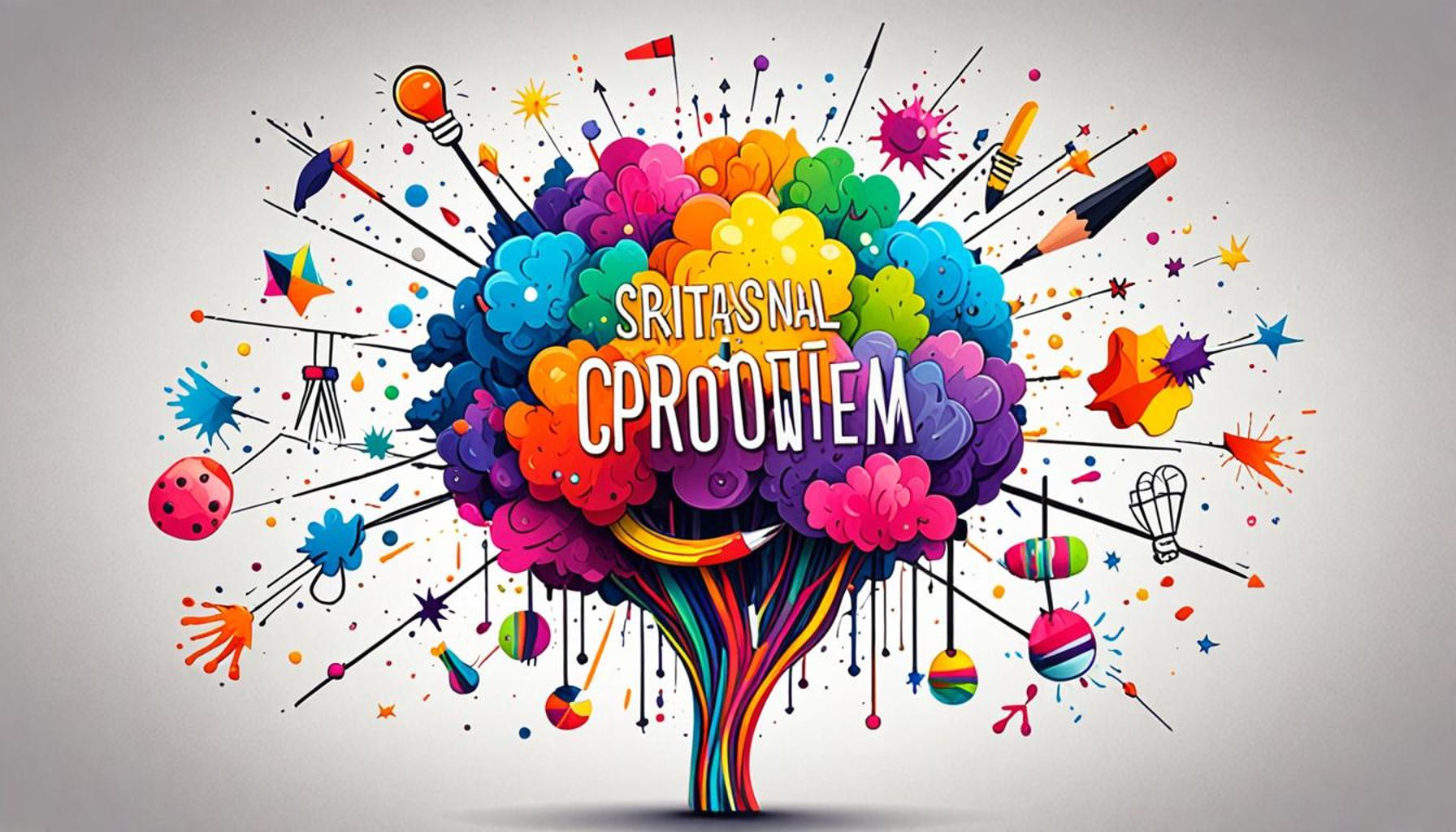The Importance of Feedback in Building a Growth Mindset

Understanding the Role of Feedback in Personal Development
In our rapidly evolving world, the ability to adapt and flourish is more crucial than ever. One of the most significant tools for fostering this adaptability is feedback, which plays a pivotal role in nurturing a growth mindset. This mindset empowers individuals to excel in various domains, from educational pursuits to professional endeavors.
Comprehending the significance of feedback is vital for both personal and professional growth. This understanding encompasses several essential elements:
- Clarity of Goals: Feedback serves as a compass, clarifying one’s objectives and enabling the setting of realistic expectations. For example, a student who receives feedback on their writing skills can better understand areas that require improvement, allowing for a more focused approach to their studies.
- Motivation: Constructive criticism acts as a catalyst for motivation, spurring individuals toward self-improvement. In a workplace setting, an employee praised for innovative thinking may feel encouraged to propose more ideas, thereby enhancing their contribution to the organization.
- Learning Opportunities: Rather than perceiving mistakes as failures, individuals can view them as valuable learning opportunities. For instance, an entrepreneur in Lagos who encounters challenges in launching their startup can use feedback to adjust their business model, ultimately paving the way for future success.
In Nigeria, where innovation and resilience are increasingly valued, feedback can act as a transformative force, propelling both individual and societal advancement. It enables individuals to turn setbacks into vital lessons and curiosity into pathways for deeper knowledge. The emphasis on a culture of feedback is evident in various sectors, from technology hubs in Yaba to educational institutions across the country, fostering environments where growth thrives.
Acknowledging feedback as a means of enhancement opens numerous doors to new opportunities. In the classroom, for instance, active engagement with teachers can deepen a student’s comprehension of subjects, sparking a lifelong passion for learning and discovery. Schools that implement regular feedback systems often see an increase in student performance and morale, demonstrating the effectiveness of this approach.
As we explore this important topic further, it becomes evident that embracing feedback is not merely advantageous but essential for cultivating a robust growth mindset. Stay tuned to unveil how you can leverage the power of feedback to unlock your full potential and foster personal success in today’s dynamic landscape.

RECOMMENDED: Check out this similar article
The Transformative Power of Feedback
Feedback is more than just a tool for evaluation; it is a fundamental part of the learning process that shapes our growth trajectory. When it comes to developing a growth mindset, feedback is essential because it fosters resilience, adaptability, and a willingness to embrace challenges. Understanding how feedback influences personal development can propel individuals towards remarkable achievements, both in academic settings and professional landscapes.
One of the transformative aspects of feedback lies in its ability to promote self-awareness. Feedback helps individuals gain insights into their strengths and weaknesses, providing a clearer picture of their capabilities. For instance, consider a university student in Nigeria who receives detailed feedback on their project presentation. This feedback not only identifies areas for improvement but also highlights their strengths, allowing them to build confidence. Such self-discovery is crucial for establishing a mindset that thrives on learning and growth.
Moreover, constructive feedback creates an environment where individuals feel safe to take risks. It encourages a culture of open communication, essential for innovation and creativity. In the bustling tech sector of Lagos, many startups are discovering the immense potential of feedback loops in product development. Founders who actively seek feedback from their users are more likely to pivot their strategies, refine their offerings, and ultimately succeed in a competitive market. Consequently, embracing feedback can lead to a culture where challenges are not merely obstacles but stepping stones to success.
Understanding the multilateral benefits of feedback allows individuals to reshape their perception of both accomplishments and setbacks. Key benefits of nurturing a feedback-rich environment include:
- Enhanced Learning: Regular feedback encourages continuous learning, promoting the idea that talent is not fixed, but can be developed through effort and practice.
- Increased Engagement: Engaging in dialogue about performance fosters a sense of community, where individuals feel valued and motivated to contribute.
- Accountability: When feedback is part of a routine, individuals are more likely to take ownership of their growth, leading to higher levels of accountability and commitment.
In Nigeria, this feedback-driven approach transcends educational settings, influencing professional development across industries. Training programs that prioritize feedback mechanisms have shown to cultivate a workforce that is not only skilled but also adaptable to change. This adaptability is particularly crucial in a rapidly evolving job market, where the ability to learn from experiences can define one’s career trajectory.
In summary, feedback serves as a cornerstone for building a growth mindset. It not only aids in self-improvement but also cultivates a culture of continuous learning and resilience. As we delve deeper into the ways feedback can unlock unprecedented potential, it becomes clear that embracing this powerful tool is a crucial step towards personal and professional success.
| Advantages | Description |
|---|---|
| Enhanced Learning | Feedback propels understanding by addressing misconceptions, leading to effective problem-solving. |
| Motivational Growth | Constructive feedback promotes resilience and encourages individuals to embrace challenges, fostering a growth mindset. |
| Collaboration Skills | Engaging with diverse feedback encourages teamwork and enhances interpersonal skills, essential for successful collaboration. |
The importance of feedback in promoting a growth mindset cannot be overstated. When individuals receive constructive criticism, it allows them to analyze their performance accurately. This process of reflection reinforces the idea that abilities are developed over time through persistent effort. Furthermore, research has shown that individuals who actively seek feedback tend to outperform their peers in various domains.Supporting a culture that values feedback not only benefits individuals but also enhances team dynamics. When team members feel that their opinions are respected and listened to, they are more likely to contribute innovative ideas. The cyclical nature of feedback cultivates a supportive environment where everyone learns from one another, hence reinforcing the collective growth mindset.Moreover, by developing skills in self-assessment and peer reviews, individuals can sharpen their critical thinking abilities, which play a vital role in personal and professional development. In this landscape, embracing feedback serves as a tool for ongoing success and adaptation.
SEE ALSO: Click here to read another article
Cultivating a Feedback Culture
To truly harness the power of feedback in building a growth mindset, it is essential to cultivate a culture that values continual learning and open communication. In Nigeria, where diverse perspectives abound, fostering a feedback culture can enhance collaboration and innovation across various sectors.
A critical aspect of nurturing this culture lies in the approach to delivering feedback. Constructive criticism is far more beneficial than vague or non-specific comments. For instance, in educational institutions, when teachers provide actionable insights based on student performance, they not only clarify expectations but also motivate students to improve. This intentional feedback helps learners in regions like Abuja and Port Harcourt understand what specific areas to focus on, transforming their perceptions of failure from a negative event into a learning opportunity.
Furthermore, organizations can create structured feedback processes that incorporate regular check-ins and peer evaluations. These mechanisms can significantly enhance team dynamics and individual accountability. For example, a marketing firm in Lagos implementing bi-weekly feedback sessions found that team members who received regular constructive inputs reported a 30% increase in their productivity and a greater sense of job satisfaction. This statistic demonstrates how a well-structured feedback loop not only aids personal growth but also contributes to overall team success.
One particularly effective method of integrating feedback is through mentorship programs. In Nigeria, mentoring can play a pivotal role in building a growth mindset, especially among young professionals. When seasoned professionals provide feedback to mentees, they offer valuable guidance as well as insights into areas for improvement. This one-on-one engagement helps mentees cultivate resilience and a proactive attitude towards learning from mistakes.
Moreover, leveraging technology enhances the feedback experience. In recent years, various apps and platforms have emerged that facilitate continuous feedback in workplaces and educational institutions. For example, platforms such as FeedbackFruits allow educators to create dynamic feedback experiences within their curriculum, allowing students to give and receive input on assignments collaboratively. Such digital tools bridge the gap between traditional methods and modern expectations, making it easier to integrate feedback into daily routines.
The role of feedback in embedding a growth mindset also extends to mental health and emotional resilience. Psychological research indicates that individuals who embrace feedback are more likely to develop coping strategies for dealing with stress and adversity. In Nigeria, where pressures from academic and professional pursuits can be overwhelming, understanding feedback as a constructive tool rather than a critique fosters a healthier relationship with failures. By reframing setbacks, individuals can continue to push their limits and achieve personal growth.
Furthermore, the process of giving feedback should not be overlooked. Providing feedback is a skill that requires practice and mindfulness. Training sessions focused on effective communication can significantly enhance the quality of feedback exchanged within teams. Workshops that teach employees how to provide clear, respectful, and constructive feedback lead to more engaged and motivated workers, thus reinforcing a culture of growth and collaboration.
In a rapidly evolving landscape, adopting a feedback-centric approach is essential for successful adaptation. Organizations, educators, and individuals who prioritize feedback not only enable personal growth but also contribute to a resilient culture that savors challenges as growth opportunities. As we continue to explore the nuances of feedback, it is evident that this tool is foundational in the ongoing journey toward a growth mindset.
LEARN MORE: This related article may interest you
Embracing Feedback for Continuous Growth
In conclusion, the role of feedback in cultivating a growth mindset cannot be overstated. As explored throughout this article, feedback serves as a vital mechanism for personal and professional development, shaping how individuals perceive challenges and setbacks. By fostering an environment that prioritizes constructive criticism, organizations and educational institutions in Nigeria can transform their approach to learning and collaboration, enabling both individuals and teams to thrive.
The methods of delivering feedback—be it through structured processes, mentorship programs, or technological platforms—play an integral role in facilitating meaningful exchanges that enhance individual performance. Moreover, the benefits extend beyond just skill development; embracing feedback can lead to improved mental resilience, equipping individuals with the tools to navigate the pressures of academic and professional landscapes.
As we continue to strive for innovation and adaptability in an ever-changing world, it is imperative to embrace a culture that sees feedback as a catalyst for growth rather than a mere critique. Educational workshops and training sessions tailored to enhance feedback skills will not only ensure clearer communication but also foster a more engaged and motivated community. As Nigerian professionals and students increasingly adopt a feedback-centric mindset, they will be better poised to seize opportunities and confront challenges, ultimately driving personal achievement and collective success.
In the journey toward cultivating a growth mindset, the willingness to give and receive feedback stands as a powerful tool. By reframing how we think about feedback and utilizing it effectively, Nigerians can embark on a continuous journey of self-improvement and resilience, paving the way for a brighter, more collaborative future.


